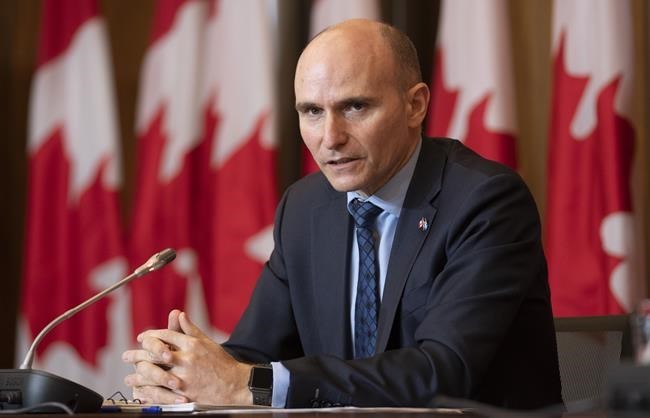OTTAWA — Vaccinated travellers will no longer need a molecular COVID-19 test to enter Canada starting Feb. 28, which comes as sunny news to some business groups and travellers looking forward to a March break getaway.
Rather than a molecular test, travellers can instead opt for a rapid antigen test approved by the country in which it is purchased, federal Health Minister Jean-Yves Duclos announced Tuesday. However rapid tests will have to be administered by a laboratory, health care or telehealth provider.
Some fully vaccinated travellers might still be randomly selected for a molecular test at the airport, but they will not be required to quarantine while they wait for the result.
Unvaccinated children under the age of 12, travelling with vaccinated adults, will no longer have to isolate from school, daycare or other public places for 14 days after they arrive in Canada either.
The government also plans to lift its advisory urging Canadians to avoid all non-essential travel outside the country due to the risk of the Omicron variant of COVID-19.
Unvaccinated foreign nationals are still barred from entering Canada, and unvaccinated Canadians will need to be tested at the airport and again eight days after arrival, and isolate for 14 days.
Anyone aged 12 years and four months old, or older, must also be vaccinated to board a plane, passenger train or cruise in Canada as well.
The pre-departure test requirements will be more closely aligned with those of the United States which allows people to preform a rapid antigen test on themselves, as long as the test is affiliated with a telehealth service that will verify the user's identity, supervise the test, and provide written documentation.
Canadian Chamber of Commerce president Perrin Beatty said the changes gradually move Canada toward what is happening in other major jurisdictions.
The government will consider easing restrictions further in coming weeks if the epidemiological situation continues to improve, hospitalizations continue to diminish, and Canadians continue to get their booster shots, Duclos said.
Duclos said the government has adjusted COVID-19 border measures because Canada has more tools to transition away from stiff restrictions.
"These tools include the strong surveillance system, a highly vaccinated population, continued access to vaccines, access to therapeutics both in and outside our hospital system and increasing access to rapid tests," Duclos said.
There were 5,801 new confirmed cases in and 110 deaths in Canada Monday, the latest data from the Public Health Agency of Canada shows.
Though case counts provide a limited picture of the spread of the virus because many jurisdictions have restricted the use of molecular tests, the latest figures still show a dramatic drop from the peak of the Omicron wave when new cases reached upwards of 54,000.
More airports will also be able to receive international flights after Feb. 28, Transport Minister Omar Alghabra announced. For now, only 18 Canadian airports are allowed to accept international flights.
In addition to international airports, other airports in communities like Windsor and London in Ontario, Fort McMurray, Alta., and Moncton, N.B., will also start to receive flights from abroad, Alghabra said.
He promised more information about how COVID-19 testing will work for cruise ship travellers arriving at Canadian ports would be forthcoming, in time for cruise ship season.
This report by The Canadian Press was first published Feb. 15, 2022.
Laura Osman, The Canadian Press
